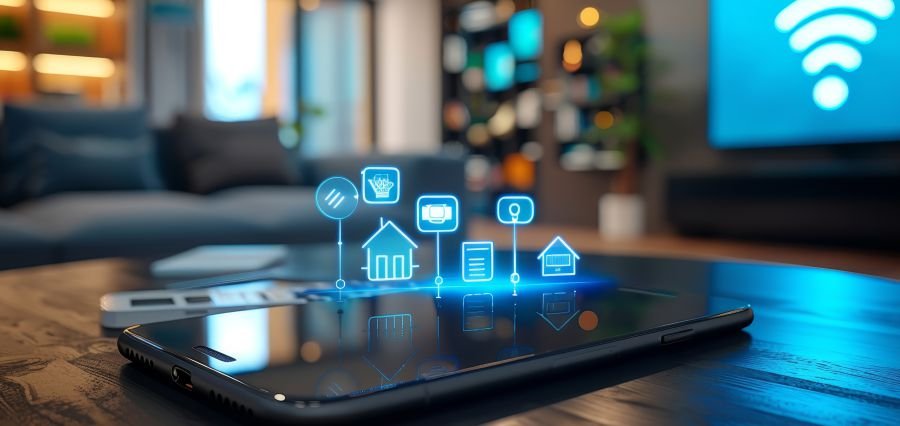In recent years, the integration of smart home technology has transformed the landscape of real estate. Homebuyers and investors increasingly prioritize properties equipped with smart systems, recognizing the value these advancements bring. This trend has had a notable impact on real estate prices, driven by the demand for enhanced security, convenience, and energy efficiency. This article explores how smart home technology influences property values, examining the key factors contributing to this shift.
Rising Demand for Smart Homes
The allure of smart home technology lies in its promise of a more efficient, secure, and convenient living environment. Devices such as smart thermostats, security systems, lighting controls, and voice-activated assistants offer homeowners unprecedented control over their living spaces. This demand has spurred a wave of interest from buyers willing to pay a premium for homes equipped with these features.
According to a survey by Coldwell Banker, over 60% of prospective buyers expressed a preference for homes with smart technology. This preference is particularly strong among millennials, a demographic that increasingly dominates the housing market. As these tech-savvy buyers enter the market, they drive up demand for properties with integrated smart systems, consequently raising real estate prices.
Enhanced Security and Safety
Security is a paramount concern for homeowners, and smart home technology addresses this need effectively. Smart security systems, including cameras, motion sensors, and doorbell cameras, provide real-time monitoring and alerts. This heightened sense of security is a significant selling point, as buyers are willing to invest in homes that offer advanced protection for their families and belongings.
Properties equipped with smart security features often command higher prices due to the added value they provide. A study by the National Association of Realtors (NAR) found that homes with smart security systems sell faster and at higher prices compared to those without. This trend highlights the growing importance of security in the real estate market and its direct impact on property values.
Energy Efficiency and Cost Savings
Smart home technology also contributes to energy efficiency, a critical factor for environmentally conscious buyers. Smart thermostats, for instance, learn homeowners’ schedules and adjust heating and cooling systems accordingly, leading to significant energy savings. Similarly, smart lighting systems can be programmed to turn off when not in use, reducing electricity consumption.
Energy-efficient homes are attractive to buyers not only for their environmental benefits but also for the potential cost savings. Lower utility bills make these properties more appealing, driving up their market value. A report by the American Council for an Energy-Efficient Economy (ACEEE) indicates that energy-efficient homes sell for 3-5% more than their less efficient counterparts. This premium reflects the long-term savings and sustainability benefits associated with smart home technology.
Convenience and Lifestyle Enhancement
The convenience offered by smart home technology cannot be overstated. Voice-activated assistants like Amazon Alexa and Google Home streamline daily tasks, from setting reminders to controlling household devices. Smart appliances, such as refrigerators that can monitor groceries or ovens that can be preheated remotely, enhance the overall living experience.
This convenience factor is a significant draw for modern homebuyers, who prioritize a lifestyle that integrates seamlessly with technology. Properties with these advanced features often see increased demand, as buyers seek homes that align with their tech-centric lifestyles. As a result, homes equipped with smart technology frequently achieve higher sale prices and faster transactions.
Market Trends and Future Projections
The impact of smart home technology on real estate prices is poised to grow as technology continues to evolve. The Internet of Things (IoT) and advancements in artificial intelligence (AI) are set to further integrate smart systems into everyday living. As these technologies become more accessible and affordable, the adoption rate among homeowners is expected to rise.
Real estate developers and investors are increasingly incorporating smart home technology into their projects to meet the growing demand. New construction homes often come pre-equipped with smart systems, attracting buyers willing to pay a premium for these features. Additionally, retrofitting older homes with smart technology is becoming a common practice, further boosting property values.
Conclusion
The integration of smart home technology has undeniably reshaped the real estate market, driving up property values and altering buyer preferences. Enhanced security, energy efficiency, and unparalleled convenience are key factors that make smart homes more desirable. As technology continues to advance, the influence of smart home features on real estate prices is likely to intensify.
Homebuyers and investors should consider the long-term benefits of smart home technology when evaluating properties. For sellers, investing in smart systems can yield significant returns, as homes with these features command higher prices and attract more interest. The future of real estate is undoubtedly intertwined with the evolution of smart home technology, making it a crucial consideration for all stakeholders in the market.


